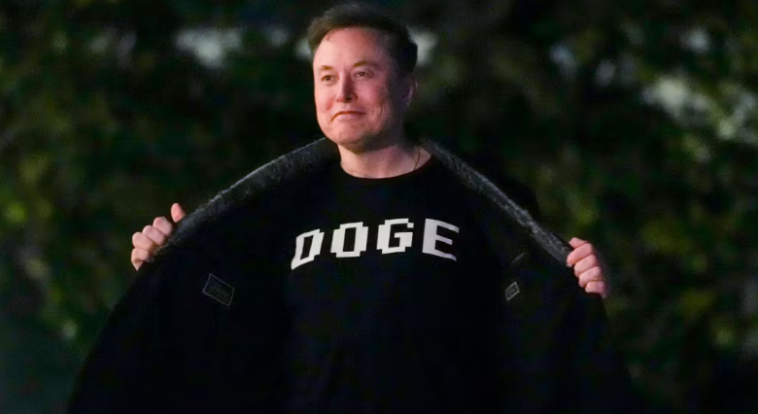Elon Musk, now serving as the head of the Department of Government Efficiency (DOGE), is raising eyebrows again—this time by calling out the unusual and often unexplained wealth accumulated by long-serving members of Congress. Speaking at a recent town hall event in Wisconsin, Musk signaled that his next focus may be on how career politicians have managed to become multi-millionaires on taxpayer-funded salaries.
During the event, an audience member asked whether DOGE had uncovered any signs of foreign aid funds being funneled back to prominent Democrat lawmakers such as Maxine Waters, Adam Schiff, and Chuck Schumer. While Musk didn’t accuse anyone directly, he pointed to a troubling and complex system that makes tracing money incredibly difficult.
Musk described how taxpayer money is sent to agencies like USAID, which then push that money to various “non-governmental organizations” (NGOs). The term may suggest independence from the government, but in reality, many of these groups receive the bulk of their funding from the very agencies they’re supposedly separate from. According to Musk, once the money enters this system, it often ends up bouncing through a maze of organizations, sometimes even circling the globe, before finding its way back to the U.S.—potentially enriching individuals who are supposed to be serving the public.
The DOGE chief emphasized how this loophole allows funds to quietly filter through layers of bureaucracy, NGOs, and shell organizations, creating an almost untraceable trail. He said this money laundering-like circuit deserves serious investigation, especially when taxpayer dollars may be coming back to benefit lawmakers who are already suspiciously wealthy.
Musk didn’t name names, but the examples are already out in the open. Nancy Pelosi, for instance, reportedly has a net worth of around $250 million despite spending decades on a government salary. Senator Rick Scott, a Republican, is reportedly worth over half a billion dollars. While Scott made much of his wealth before entering politics, Pelosi’s accumulation while in office has raised plenty of red flags. This kind of discrepancy is becoming more common, with both parties having members whose bank accounts far exceed what a public servant’s pay would reasonably provide.
The standard congressional salary is $174,000 per year. Even with perks, that doesn’t explain private jets, mansions, and investment portfolios stacked with well-timed stock trades. For years, critics on both sides of the aisle have asked how so many public officials seem to beat the market with uncanny precision and acquire real estate empires while supposedly focused on legislating for the American people.
Musk’s Department of Government Efficiency was created specifically to root out this kind of corruption, waste, and abuse. His recent remarks suggest that DOGE is now turning its attention to the financial dealings of those who make the laws—and that could shake Washington to its core. If Musk’s team can follow the money and expose the hidden pipelines enriching public officials, it could lead to one of the most significant government accountability shakeups in modern history.
The American people have long suspected that something is rotten in the halls of Congress. Year after year, they watch as lawmakers get richer while their constituents struggle to make ends meet. Musk appears to be tapping into that frustration and turning it into action.
Whether Congress is ready for that level of scrutiny is another story entirely. But one thing is clear: Elon Musk isn’t afraid to rattle cages, and the political class may soon have to answer for how they turned “public service” into a path to personal fortune.

